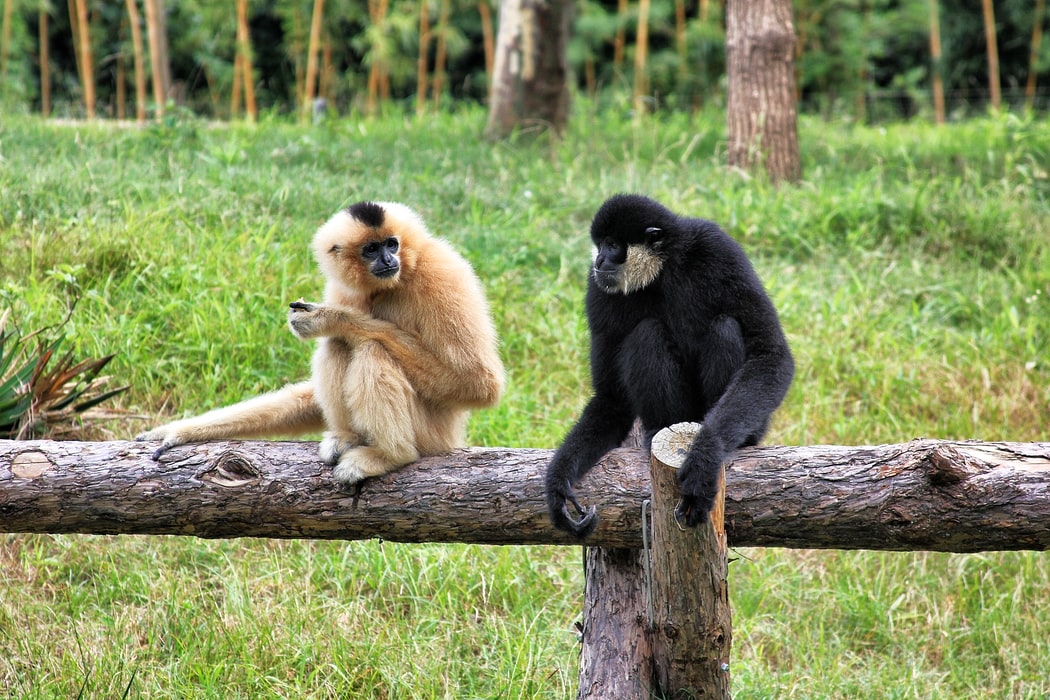Animals
World’s Rarest Primate, the Critically Endangered Hainan Gibbon, Returns From Brink of Extinction
Up until recently, the highly intelligent and charismatic Hainan Gibbon was standing at the brink of imminent extinction with only 10 members still existing.

(TMU) – Until very recently, the highly intelligent and charismatic Hainan Gibbon was standing at the brink of imminent extinction with only 10 members of the species existing in a tiny patch of land on a tropical island at China’s southernmost tip.
But thanks to the devoted work of a team of conservationists, the ultra-rare Hainan Gibbon appears to have a much brighter future, with their numbers swelling to 30 individuals as of this year.
The Hainan Gibbon is a not only one of the world’s rarest apes and rarest primates, but it’s also one of the rarest animals on the face of the Earth, largely restricted to a small patch of rainforest at the Bawangling National Nature Reserve on Hainan Island in the South China Sea.
https://twitter.com/gallinafiedler1/status/1262258167632793600
Gibbons can be found in forests across Southeast Asia. Like other gibbons, the Hainan gibbon swings rapidly from tree to tree and mostly rely on fruit such as lychee and figs for its diet. The males have jet-black fur with white patches on their cheeks, while mature females are a rich golden orange. Their faces are tender, and their eyes seem to reflect an intelligent curiosity about their surroundings.
“They are really intelligent animals. When they look at you, it feels like they are trying to communicate,” Philip Lo Yik-fui told South China Morning Post. Lo has been helping to lead conservation efforts through the Hong Kong-based NGO, Kadoorie Conservation China.
According to the International Union for Conservation of Nature – which has included the species on its Red List as “Critically Endangered” – the Hainan gibbon used to exist in high numbers, with researchers estimating that over two thousand individuals populated the island.
However, the species’ numbers fell precipitously in the second half of the 20th century thanks to climate factors as well as massive deforestation resulting from China’s push toward prosperity and industrialization. Hunters and poachers also targeted the highly intelligent and social gibbons, either for the illegal pet trade, food, or for traditional medicine.
By 2003, only 13 wild gibbons divided into two family groups remained – a result of not only the diminishing quality of their habitat but also their naturally slow birth rate.
Over the years, however, Kadoorie Conservation Cina has been monitoring the gibbons, working hard to discourage poachers, and also planting over 80,000 fig and lychee trees to link the populations of the famously shy gibbons and expand their habitat.
And with the gibbons now reproducing at a stable pace, Lo is hopeful that once they get the gibbons’ numbers above 50, their IUCN designation can change from being critically endangered to simply “endangered.”
“Our biggest goal now is to help expand the gibbons’ territory so the whole species won’t be wiped out if natural disasters occur,” Lo said.
Yet concerns remain about the genetic health of the Hainan Gibbons, who are mostly either half-siblings or full-siblings – meaning that their gene pool is far too narrow at present.
However, Lo is proud that his group’s efforts have stabilized things for the remaining Hainan Gibbons. His next goal is to continue expanding the creature’s territory so that if a typhoon or other natural disaster strikes, the whole species won’t be wiped out in one fell swoop.
The Kadoorie Conservation China team has also recruited ex-hunters from the community, who have a wealth of experience about local forests, to keep an eye on the gibbons and take part in conservation efforts.
Lo said: “We try and instill a sense of pride in the locals, and the ex-hunters are really satisfied with their work now.That is the main point of conservation work, it’s just as much about the people. And now people who were on opposing sides are teammates working together to protect the gibbons.”
Typos, corrections and/or news tips? Email us at Contact@TheMindUnleashed.com
